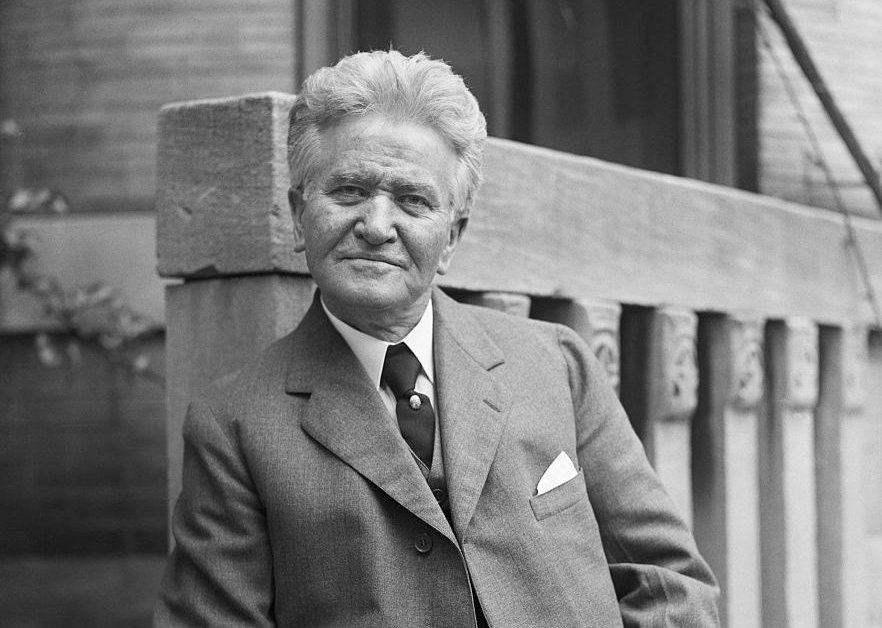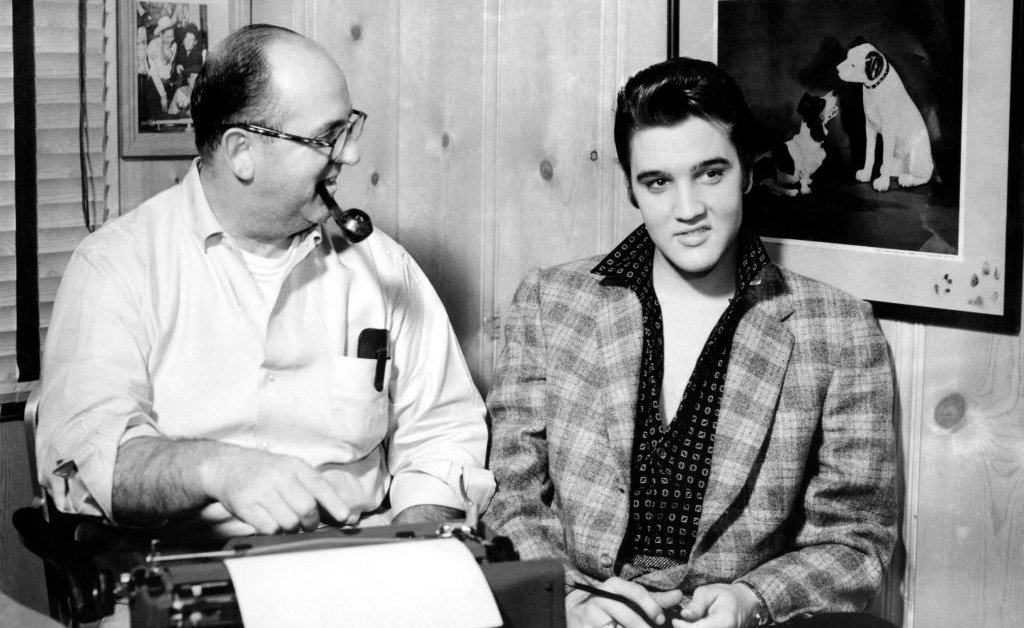President Donald Trump’s return to the White House has left many progressive Americans feeling disillusioned, resigned, and apathetic. Warnings about the dangers of the former president fell flat with a little more than half the electorate last fall. And many Trump supporters remain fiercely loyal—despite his most egregious violations of democratic principles.
Democrats have spent the last several months struggling to fight back against Trump’s policies—even those that are massively unpopular.
The story of Senator and Governor Robert M. La Follette, a Republican from Wisconsin who is widely regarded as one of the greatest progressive politicians in American history, might offer some inspiration for progressives struggling today. His legacy suggests that securing political change requires persistent activism, tempered by patience. La Follette’s history reminds activists that continuing to push steadily forward toward specific objectives offers them the best chance of eventually achieving their political goals.
In 1873, just before becoming a student at the University of Wisconsin, La Follette heard Edward Ryan, soon to become the state’s Chief Justice, give a commencement speech. Ryan bluntly defined the central questions of the coming era: “Which shall rule—wealth or man; which shall lead—money or intellect; who shall fill public stations—educated and patriotic freemen, or the feudal serfs of corporate capital?” This question would animate La Follette’s career as he tried to live up to UW president John Bascom’s insistence that students accept the obligations of citizenship and their duty to serve the state.
La Follette came to share Bascom’s passion for social and economic justice, including his support of labor associations and women’s rights. In preparation for a career in public service, he honed his considerable oratory skills and ultimately earned a law degree in 1880.
La Follette became a part of the burgeoning progressive movement, that rose in response to conditions of the long Gilded Age. By the late 19th century, the economy was unregulated, unstable at best, and frequently rocked by recessions and depressions. Immigrants poured into cities, providing much of the labor force of a newly industrialized America, which saw its economy become the largest in the world—thanks in large part to their low wages. Dreams of the U.S. as a land of glorious opportunity seemed available exclusively to the already wealthy. Most Americans worked menial, often dangerous, jobs that were so low paying that entire families had to work to survive. After long hours in dangerous conditions, workers returned to urban ghettos rife with poverty, crime, and disease. Precious, nonrenewable resources were decimated, with no thought to their conservation, let alone preservation.
Read More: As Schumer’s Stock Falls, Here’s Who’s Vying to Lead Democrats Against Trump
Too often, government appeared, at best, helpless to curb the harmful excesses, and, at worst, a willing collaborator in the profitable carnage. Politicians like New York’s Boss George Plunkett spoke openly and approvingly of “honest graft.” A seat in the Senate (often referred to as “the Millionaire’s Club”) could be purchased merely to increase a wealthy man’s status. State legislators frequently chose U.S. senators thanks to backroom bribes.
Powerful trusts cornered markets and set prices, controlling such necessities as beef, steel, sugar, oil, and money. The attitudes of the wealthy businessmen who dominated the Gilded Age were summarized by George Frederick Baer, the spokesman for the coal mine owners during the anthracite strike of 1902: “The rights and interests of the laboring man will be protected and cared for—not by the labor agitators, but by the Christian men of property to whom God in His infinite wisdom has given control of the property rights of the country.”
La Follette fiercely disagreed, and saw the ownership class as a “hostile force” that threatened to “thwart the will of the people and menace the perpetuity of representative government.”
La Follette and his fellow progressives dedicated themselves to fighting for a better future of the nation. He won election to the U.S. House of Representatives in 1884 and served three terms. But his first two bids for Wisconsin’s governorship failed because opponents bribed delegates at the state’s Republican nominating convention. In 1900, he undertook a third bid, promising to eliminate the corruption of the increasingly powerful political bosses and machines by enacting the direct nomination of all political candidates.
His determination to return power to the people galvanized voters and carried him to victory.
Under La Follette’s leadership, Wisconsin pioneered many initiatives to more equitably redistribute America’s wealth and power. Most importantly, he took on big interests, especially the railroads and other powerful utilities. At La Follette’s behest, the state legislature enacted a thoroughgoing and efficient reform of these industries. The governor also pioneered civil service reform, insisting that government jobs be awarded on merit. Additionally, his administration regulated lobbyists, enacted stronger provisions against corrupt practices, implemented environmental measures, and reformed Wisconsin’s tax system to be more equitable, nearly doubling the amount paid by railroads. He also changed how the state elected officials, fulfilling his pledge to enact primary elections for all elected offices so no one could purchase them in back room deals. By 1906, when La Follette moved to the U.S. Senate, progressive governors across the nation were eagerly trying to duplicate many of his initiatives.
In the Senate, La Follette continued his push to regulate the railroads, including by beefing up the powers of Interstate Commerce Commission, and limiting the number of consecutive hours railroads could require employees to work. He contributed significantly to the passage of two constitutional amendments: The 16th, which allowed the federal government to levy a graduated income tax (which La Follette saw as a path toward more equitable income redistribution) and the 17th, which established the direct election of U.S. senators, so that voters couldn’t be corrupted like state legislators had been.
In 1915, La Follette pushed through the Seaman’s Act, which required ships to carry enough lifeboats for all passengers and crew. He saw the recent Titanic disaster as proof that the lives of the poor were less valued, and argued that all lives were worthy of equal protection.
Perhaps La Follette’s most controversial act as a senator was his outspoken opposition to U.S. entry into World War I. President Woodrow Wilson presented the war as a culmination of progressive reform ideas, promising it would “make the world safe for democracy.” La Follette dismissed this assertion, warning that war was “a dreadful diversion for peoples demanding juster distribution of wealth. War is the money changer’s opportunity, and the social reformer’s doom.”
Read More: How Wisconsin Became the Ultimate Purple State
This position fueled massive blowback. Despite this national vilification, however, Wisconsin voters reelected La Follette in 1922. In 1924—only a year before he died—La Follette ran for president as an independent and captured 17% of the vote. And after he died, his son was elected to the Senate for another 21 years.
One of La Follette’s greatest gifts was the ability to recognize that achieving progressives’ goals was not a short term project. “We are,” he said, “slow to realize that democracy is a life and involves continual struggle.” He set out to inspire the like minded to take part in what he envisioned as a perpetual movement. La Follette counseled both immediate action…and patience: “It will not be possible to restore industrial and commercial freedom at once.” But it was important to begin the process.
For as much as La Follette achieved, his prediction that the struggle would be long proved accurate. Much of the original progressive agenda, with its emphasis on federal regulation, stalled during the final years of La Follette’s career. After World War I, the nation experienced a period of disillusionment and reform fatigue. The successes as well as the failures of the progressive movement contributed to its stagnation: with the worst excesses remedied, it was hard to create consensus on next steps.
Progressives also encountered reversals as the wealthy fought to regain undue political influence. La Follette anticipated this regression too, noting that “tyranny and oppression are just as possible under democratic forms [of government] as any other.” Yet, he counseled hope rather than despair.
Again, this proved prescient. Reformers kept fighting after La Follette died in 1925, and their perseverance paid off during the New Deal in the 1930s. Later, the Civil Rights movement of the 1950s and 1960s reactivated other dormant progressive ideas.
During his presidential campaign, La Follette urged his fellow citizens to recognize that “There is an unending struggle to make and keep government representative…Mere passive citizenship is not enough. Men must be aggressive for what is right if government is to be saved from those who are aggressive for what is wrong.”
That statement—and La Follette’s philosophy more broadly— provides a blueprint for liberals navigating the Trump era. For disillusioned progressives feeling powerless to stop President Trump’s initiatives, La Follette’s career exemplifies the value of rejecting the siren song of frustration and complacency in favor of persistence in pursuing progressive ideals. Only continuous efforts and vigilance can safeguard American democracy and create a more equal and just society.
Nancy C. Unger is professor of history at Santa Clara University, and the author of the prize-winning biography Fighting Bob La Follette: The Righteous Reformer.
Made by History takes readers beyond the headlines with articles written and edited by professional historians. Learn more about Made by History at TIME here. Opinions expressed do not necessarily reflect the views of TIME editors.








